
Headmaster's Reflections
Headmaster
Dr Alec O'Connell

Headmaster
Dr Alec O'Connell
I trust your last couple of weeks have been as exciting and rewarding as have mine. This term is disappearing quicker than it commenced, and the more things return to normal the quicker the time seems to be going.
Last week I commenced my annual House lunches with our Year 12s. Without doubt I find this one of the most useful and enjoyable activities of my year. Why? Well the answer is very simple. It is extremely rewarding to spend some quality time with this group of young men who are not far from completing their individual journeys at Scotch. It is their individual journey which is most intriguing. At these lunches we ask the boys to reflect on their time at the College, good and bad times, and to share the things they would and would not change about their College. Without doubt, the information we receive each year from these sessions outweighs any other form of annual market survey information we obtain. Each lunch is a reaffirmation that every boy sees the benefits of a Scotch education from so many different perspectives. Most importantly, the feedback is personal, realistic and generous, with a view to improving the College for the future generations.
Of course, the 2020 group of Year 12s had a unique topic to discuss: COVID-19 and how they have felt working through all of the challenges it has created over the last few months. It will come as no real surprise that while the boys are extremely positive about how the College transitioned into an online environment and back, the aspect they missed the most was person-to-person contact with their mates and teachers, a common thread among everyone since returning to school this term.
Hopefully they will not have to face this again.
If we needed any further confirmation about the value of personal contact through being in a community, then the return to an almost fully operational PSA programme last week highlighted just how much the boys in JPSSA and PSA and their families revelled in the opportunity to return to the playing fields. The atmosphere down at our ovals and other venues where our teams played across the three days was amazing and palpable, culminating in Saturday's blockbuster PSA AFL match against Aquinas College, which received press coverage on p52 of The Sunday Times and in the football lift out in Monday's The West Australian.
While returning to sport is a great moment, we must not lose sight that the return to normal opens the door for a return to our other non-classroom pursuits in the form of the practical and performing arts. Our major production is rescheduled to commence from 26–29 August, and while the return to PSA with some extended fixtures will mean some small adjustments to our matinee performance, we must remember that there are many of our boys who place the Arts at the top of their priority list. Keep an eye out for the return of assemblies, musical and drama performances, and many other groups as we work towards getting our Scotch engine room fully operational and balanced.
When speaking to the Year 12s the word balance and multiple opportunities comes up. It is something the seven PSA schools are looking at currently, with a strategy to expand the PSA brand beyond just our sporting fields and into the arts and other non-sporting activities. This commenced in 2019 with the start of our 'Model United Nation' competition, held between the seven schools at the UWA Club function hall. This will be an ongoing journey and an exciting one as we continue to ensure that a PSA education is one to be highly sought after and valued, not just for the time one is at school, but for the rest of one's working and social life.
As we exit what has been a series of very challenging personal, social and economic moments, with some challenges yet to come, my eye is very much on the future of our great College. You often hear about brand, marketing and enrolments in the local papers and other media. I have a very simple view on this: while it is critical we continue to keep a public profile through print, digital and other media, our most important advocates for a Scotch education are you – the parents, friends, families and OSC that make Scotch what it is now and what it can become.
I encourage you to consider how you can add to our journey through introducing potential families to our community who would fit our values and culture. If you would like to introduce a family or have any ideas you would like to share about why you chose Scotch for your child, or to share what you have experienced thus far, then please do not hesitate to contact David Kyle, Director of Admissions, Engagement and Communications at david.kyle@scotch.wa.edu.au or +61 8 9383 6926.
As we come through this first period of COVID-19 and prepare for any unknown challenges that may lay ahead, our shared commitment to the College will, as it has always done through history, be the reason why we continue to grow and thrive.
Have a great fortnight,
Dr A J O'Connell
Headmaster

Revd Gary van Heerden
Chaplain
I remember sitting in a Church history lecture about a significant event in South Africa. It was about Nongqawuse (1841–98), a Xhosa prophet whose prophecies led to the Xhosa cattle killing movement and subsequently the famine of 1856–57, in what is now the Eastern Cape province of South Africa. A lot of criticism was levelled at the role of the missionaries at the time.
Our professor agreed with the criticism and then asked the question: "What you do in your ministry, you will do because you believe it to be correct. In 200 years from now, what will people be saying about what you did or should have done?". Professor Cook had the knack of always asking challenging questions.
The Black Lives Matter protest has erupted spontaneously in every state in the United States and in cities around the world. Sparked by one killing, it seems to have tapped into the conviction that if you are a minority, a person of colour, a poor person in many places across the world, you will be a target of a system that is designed to keep you down.
Geelong vice-captain Patrick Dangerfield has urged Australians to learn more about the land on which they stand and what it means to Indigenous people as players across the AFL showed their support for the Black Lives Matter movement when games began this past weekend. Mr Dangerfield has emphasised the importance of what is happening around the world to his Cats teammates.
John 3:16 says: "For God so loved the world". And in it, every person.

Mr James Hindle
Director of Student and Staff Wellbeing
What kind of society do we want to be? To what extent should people be allowed to protest and to speak their minds?
In a world of slogans, tweets and soundbites, people may reel off glib answers to such questions. However, if we pause to consider them – and we should – these are deeply difficult questions which go to the core of who we are. If we want to be better, then we should be talking about these topics with young people in a way that helps them understand the complexities.
One of the challenges in discussing such topics is recognising and agreeing on what it is we are discussing. The recent protest marches for the Black Lives Matter movement during a time of COVID-related restrictions provide a good example. At times, it seems to me that people are arguing about different things: on one side, people are arguing there is a need to maintain physical distance in order to prevent the spread of infection and to protect the majority of the population. On the other, people are marching to try to bring an end to the racism and disadvantage suffered by too many people for too long. Whilst both arguments relate to the greater good and our responsibilities towards others, one has racism as its driver, while the other has public safety at its heart. These are parallel tracks, rather than intersecting ones.
People very often seem convinced that they are right. It’s what their newsfeed tells them. It’s what their friends tell them. This is nothing new – history demonstrates people operating with closed minds over and over again. It shows people’s ‘confirmation bias’ in action: we seek things which will confirm how we see the world and ignore, dismiss or simply do not see those things which challenge our view. But in the example above, what if both sides are right? In an all-or-nothing world, this sits uncomfortably with us.
Imagine if we were wrong in what we thought; if there was a better way of doing things, a better way of living. It is likely, rather than possible: humans think so much there are bound to be errors in our thinking. Perhaps the most basic pre-requisite before a society can even begin to consider itself free and open is this: to accept that there are different viewpoints and that we might be wrong. The question then becomes, "Should some of those opinions be silenced?". The situation in Hong Kong is an example of this. When compared to the streets of America, suddenly I was struck by finding it uncomfortably difficult to tell the two societies apart.
Our own nation’s past is something that has troubled me for many years. As a History teacher, I am only too aware of the gaps which exist, not only in what we teach, but more significantly, in what we acknowledge. The frontier wars, the missions and reserves, the removal of children, the deaths in custody. These are some of many uncomfortable truths for us as a nation, but they are a part of who we are.
I cannot fully understand what it must be like to be an Indigenous person living in this country. But I think it must be very tiring to live with racism every day and we all have a responsibility to do something about that. Talking openly should be a part of that. Acknowledgement and forgiveness may hopefully follow. I struggle to see any other way for us to move beyond our past and for all of us to be able to properly embrace being Australian.
Can we be free and open as a society if we don’t acknowledge what has happened? Can we be free if we are unwilling to listen to differences of opinion? Can we be open to accepting what has happened and dealing with what arises from such differences and from the past? Can we be open as a society so that all people have a reasonable level of opportunity? I don’t know, but I am keen for us to try; perhaps we can help the next generation to get closer to that goal. To say, “Now is not the time,” appears to be insufficient.
Students in Years 6–12 and their parents have received an email outlining the School’s Child Complaints Procedure and providing an updated version of the Student Code of Conduct. These have been discussed in Homerooms in Middle School and the Head will be following up with visits in the coming weeks. In Senior School, these policies and procedures have been discussed in Mentor groups and Houses. I am grateful to many people who had input into the creation of these documents, including staff and students. I also thank the Office of the Commissioner for Young People and Children and the Telethon Kids’ Institute for their resources. You may like to visit the Commissioner for Young People and Children website for more information relating to Child Safety.
The shop will close for Autumn term at 11.30am, Friday 3 July.
The shop will be open on Monday 27 July (the day before Winter Term commences) from 9.00am – 12.00pm and 1.00pm – 4.00pm.
From Tuesday 28 July the normal term opening times will apply:
Tuesday: 8.00am – 5.00pm
Thursday: 7.30am – 11.30am
Friday: 7.30am – 11.30am

Miss Penny Hooper
Acting Head of Junior School
Every week there is a buzz of work taking place across the Junior School and as Acting Head I am extremely fortunate to be able to witness so much wonderful learning each and every week. This brings me endless joy and it understandably fills ‘my bucket’.
This last fortnight, I was paid a visit by our beautiful Kindergarten children. As part of their current unit of inquiry around the four zones of regulation, the children went about completing ‘random acts of kindness’. The visits were just lovely and kindness was expressed not just once but twice by both classes. Thank you Kindergarten students, what a gorgeous way to start my working week! How could one feel anything but blessed? Thank you for my ninja mask, I love it and now I too can become a kindness warrior and my lovely flowers and special kindness potion are indeed a treat. When I spoke to the Kindergarten students, they were able to tell me that kindness wasn’t just about giving gifts but smiling at others, saying kind things and helping people were also ways to show kindness. It was pure delight to witness that at four years of age these youngsters were discovering one of life’s little treasures – the gift of giving and showing kindness.
In another part of the Junior School, the Year 2 boys passionately wrote to me to try and persuade me with some changes that they would like to see take place in their school. I took the time to read and analyse the letters from each Year 2 student and tabulated those that were raising the most concern. In conclusion, the desire to have a ‘working shed’ where the boys could construct and build was their first passion, and was seconded by their absolute concern of the amount of rubbish around the school grounds. I responded to the boys about these two events along with their other wonderful ideas of constructing a fireman’s pole for a quick escape and play, or for a trampoline which would be a welcome addition to the school grounds. These secondary items I will have to come back to with the boys for myriad reasons. What did come from the first two concerns however, was an even richer desire to ‘act’ on something that the PYP programme relishes in. As such, I can see a great passion building in the Year 2 class surrounding rubbish, its impact on the world and what they can do as a class to make a difference.
At the top end of the Junior School, the Year 5 leadership journey starts again. The dread of public speaking, the healthy nerves that comes with this and the feeling of achievement when you persevere and push through were strong messages from those boys who have held office in Semester 1. One of the things that the Year 5 boys did share, was what they discovered after talking to their parents about their schooling journey and their thoughts on leadership. Conversations with parents included discussing the number of positions you nominate for and how this brings about the increased chance of holding office. Others discovered what captaincy positions parents held when they were at school, as well as ways to put your ‘best foot forward’ when talking to others about your strengths in leadership.
It has been a wonderful fortnight with so many rich experiences. I am in awe of the learning the Junior School students are undertaking every day and am constantly astounded by their capabilities. Thank you boys for sharing with me your learning journey.
Keeping the window into your son’s school day open!
Many rich learning experiences are occurring each day in the Early Learning Centre and Junior School. While parents would love to be able to see them all, it is sometimes hard for the younger boys to articulate all they have done during that day. Many times, students will share one small activity, or even say "not much" when asked about their day on the car ride home.
When we transitioned to the Scotch College Online Teaching (SCOT) programme, parents were able to see first hand how the boys were working though their activities and could become familiar with their son’s progress and the way the teachers would provide their feedback.
Boys in Years 1 to 5 continue to use Showbie to collect and upload their digital work and receive feedback from their teachers. Showbie allows teachers from all subject areas to allocate differentiated activities and provide digital comments, either written and audio. Showbie is a great way for Year 1 to 5 parents to see what has been happening in their sons’s classes and start a conversation on what they are working on.
Next time you ask what has been happening at school and hear the response "not much", ask your son to grab his iPad and get him to navigate through. This is a great way to discuss new concepts and help deepen the learning.
Mrs Amanda Ritchie
ILT Integration Specialist
The 4C boys have had a wonderful Autumn Term filled with fun and excitement. There were smiles all round in Week 2 when they returned to school, saw their friends and settled back into our normal routine.
We began the term with our third unit of inquiry: ‘How we express ourselves’. The boys enjoyed learning about heroes and villains from different traditional stories. We read The Legend of Ned Kelly by Mark Greenwood and had rich discussions about whether he should be remembered as a hero or villain. The boys then wrote their own persuasive texts to present their point of view about Ned Kelly. Our persuasive writing continued to a dinner party. The boys selected three characters they would like to invite for dinner and presented details and examples to support their choices.
In our reading lessons, we explored the stories of Beowulf, The Odyssey and Robin Hood. We studied the heroes of these stories and summarised the main events using the hero’s journey framework. The boys also created their own hero and wrote entertaining myths where their hero solved a quest.
We readily took on the challenge to present an online assembly item. Our item focused on the epic story of Hercules. The boys recited the poem and acted out the Twelve Labours of Hercules. They had so much fun taking on the role of Hercules and acting as mythical creatures, wild animals and warriors. I congratulate them on their wonderful performance.
As the restrictions eased, we were very fortunate that our local history hunter, Mark Greenwood, graciously accepted an invitation to speak to the boys on his amazing stories about long lost explorers, famous cold cases and Australian legends. The boys thoroughly enjoyed their session with Mark Greenwood and look forward to reading more of his amazing books.
Our final project for this unit is to conduct a research project about a legendary person. The boys have selected a legendary person in a field that interests them. They have gathered information and are in the process of writing a persuasive speech. They will be taking on the role of this person and dress as their likeness for the oral presentation component. We are looking forward to welcoming Michael Jordan, Robert the Bruce and many other legendary people into our classroom and learning about their incredible lives.
All in all, it has been a fantastic term in 4C and we can’t wait to explore the wonders of science in our new unit of inquiry: ‘How the world works’.
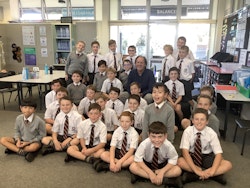

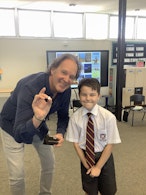
Miss Olivia Creagh
Year 4 Teacher
The Junior School students have had a fabulously creative start to 2020. The boys are in the thick of inquiry-based music units and are having lots of fun!
The Year 1 students have been exploring pitch and melody through movement, singing and playing songs on the glockenspiels. Year 2 have just finished writing and performing their own rhythm compositions and are now considering creating their own musical notation. Year 3 have been having fun picking the ‘odd one out’ by focusing on the placement of accents to determine whether music is in threes or fours. Year 4 have been exploring ‘feels’ in music and the musical elements that help to characterise various genres. Year 5 have just finished a task in which they carefully considered the process of learning and performing reggae rhythms in groups before transferring them onto instruments.
I’m so impressed with the rich learning that has been taking place. Keep up the great effort boys!
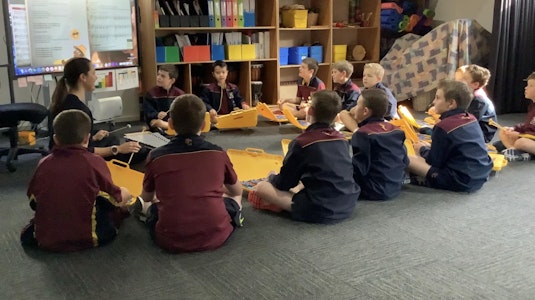

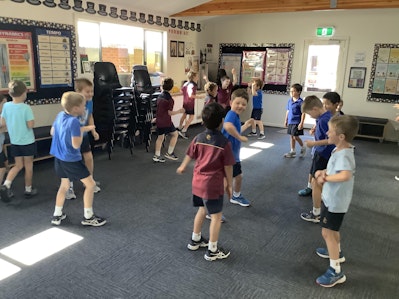

Miss Phebe Samson
Performing Arts Teacher
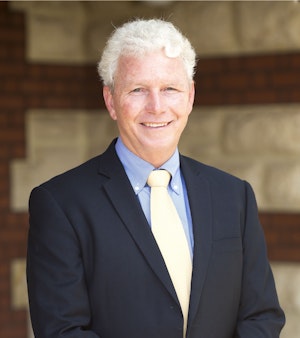
Mr Richard Ledger
Head of Middle School
By 2050 there will be more plastic in the ocean than fish.


The first image shows the plastics and recycling bin outside the Middle School Reception on lease from the recycling company Greenbatch. It is the legacy of a community project by three Year 8 boys last year. The Greenbatch bin collects PET and HDPE plastic bottles and once the bin is full, the plastic is taken away and converted to other usable plastic products by WA's very first plastic recycling plant.
The second image depicts two of the four 3D printers constructed by current Year 10 students in Design Technology classes that have been installed in Middle School. As a part of the Year 10 Design STEM course, students source the components, build a 3D printer, find homes for them and teach the recipients how to use them. Local schools have also been the beneficiaries of this project. Easy access to these printers means our Year 7 and 8 boys are now designing and sending their 3D work to the printers on our top floor. Even the staff are in on the act, with Mr Faint designing some neat components to house and store cabling for an iPad recharge station.
I've placed the two images together as we need your help. All of the plastic that goes into the recycling bin is weighed and we get a monetary credit for this. With this credit we can purchase the plastic filament for our 3D printers, which in turn has been produced from the recycled plastic. It is a really neat illustration of the reduce, recycle and reuse philosophy. The statistic that by 2050 there will be more plastic in the ocean than fish hit home with me. As did the statistic that only 4% of the plastic we put in our yellow recycling bin is recycled into plastics product. Most I gather is used as fuel.
I am looking forward to the community projects our Year 8 boys are in their midst of delivering and I hope that this recycling project offers a simple but very valuable illustration of a community project initiative. I have encouraged our students and families to bring their plastic bottles from home to school to add into this recycling system. The economic and environmental benefits make this a valuable habit for us to get into. I am more than happy to lease more Greenbatch bins if need be. Learn more about this programme.
This term our 8.5 Homeroom class has been on an epic adventure through medieval Europe. We have been researching and designing our family heraldry shields. Those lucky enough to have taken Metal Design this semester have also been able to construct their shields. We began the unit learning about the social hierarchy in medieval times known as feudalism. We then gained an understanding of knighthood and the different stages of becoming a knight, as well as their code of chivalry.
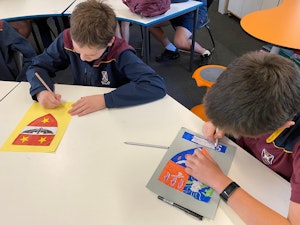

In addition to Individuals and Societies class, we had Reverend Justine come in and teach us about Christianity's role in medieval times. Throughout that experience we learnt about the Crusades and pilgrimages that still exist today. There were 10 main Crusades that occurred over a 200-year period and pilgrims are people that go on long journeys of religious significance to a specific location, such as Jerusalem. We also learnt about medieval architecture and how it has evolved over time.
Near the end of the term we will be constructing a medieval museum showcasing our learning and we hope to be able to invite parents to the exhibition in the beginning of Winter Term.
Year 8.5 Homeroom class
If you have ever sat watching a thunderstorm with mighty lightning bolts darting down from the sky, you'll have some idea of the power of electricity. Well, have you ever wondered how electricity flows? Do you know the differences between conducting materials and insulating materials? How does moving air and water create electricity? Well the 6.2 class can confidently answer all of these questions and more thanks to their recent hands-on, inquiry-based approach to their iLearn lessons.
Students have discovered that electricity is the most versatile energy source that we have and it is also one of the newest. Homes and businesses have been using it for not much more than a hundred years. Students gained an understanding of the vital role electricity has played in our past but also discovered that electricity could potentially play a very different role in our future, with many more buildings generating their own renewable electric power using solar cells and wind turbines.
The 6.2 class have thoroughly enjoyed making a variety of electrical series and parallel circuits and learning all about negatively charged particles called electrons and how they flow from the outer shell of one atom to the outer shell of another. In addition to this, boys have been using the Stile App on their iPads to think critically about the world-wide use of sustainable and unsustainable forms of energy and have begun to form their own opinion of their personal vision for Australia’s energy future.
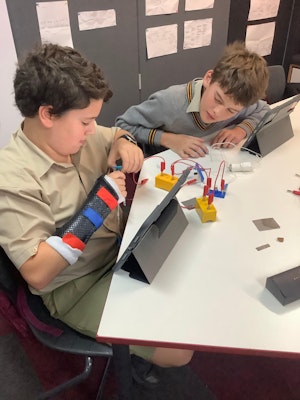
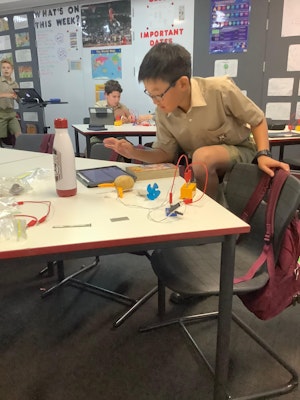
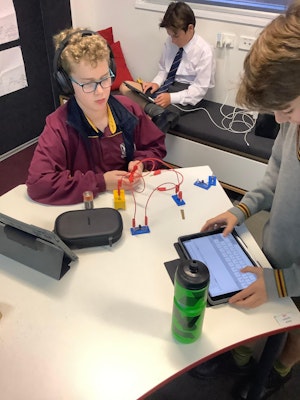
Boys really enjoyed learning about alternative sources of energy, including hydro-electric power plants, wind farms and geothermal energy. Individually, students have been thinking critically about whether sustainable energy sources are more effective than unsustainable energy sources and whether Australia, as a nation, has a moral obligation to rely more on renewable energy sources.
Mr Michael Campbell
Year 6.2 Homeroom Teacher
One of the central spaces to our Middle School is our quad, both in location and in significance. This year our students have taken greater ownership of this space and have been doing the gardening themselves in our Grow Your Own Meal Club. The club runs on a termly basis and involves planning and planting a range of vegetables and herbs before using the produce to cook different meals. So far hit meals have been nachos, pizza, basil pesto pasta, pasta napolitana, herb and garlic bread, and herb muffins.
It's fantastic to see the boys take pride in their cooking and then sit down to eat together in our garden. Even better is when we hear the boys talk about making the recipes at home for their families. Next up we will be setting up a worm farm in one of the spare garden beds, so our kitchen scraps can have another life and provide further nutrients for growing more vegetables.
The club will run again in Winter Term and be open to new members.
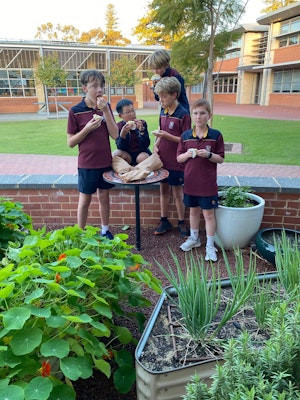
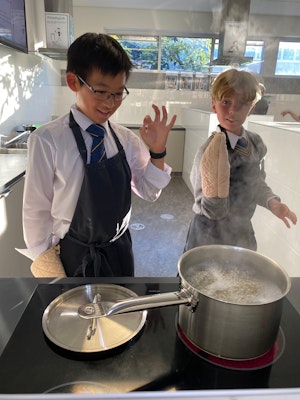
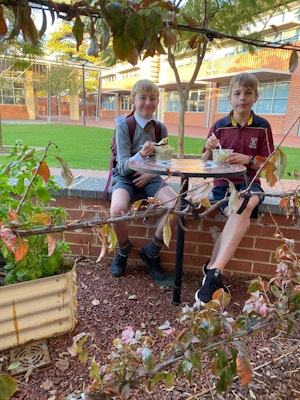
Mrs Mia Sullivan & Mrs Angela Paunoski
Grow Your Own Meal Club
Congratulations to the following Middle School boys who were awarded Swimming 2020 Champion Boys:
| Category | Champion |
| Under 13 |
Xavier Smith |
|
Under 14
|
Isaac Smith |
|
Tex Cross |
For all upcoming events, visit our online calendar.
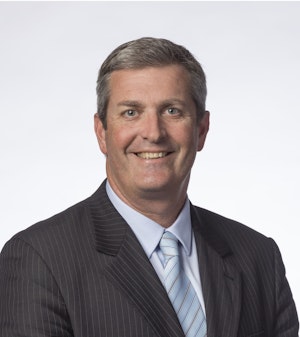
Mr Peter Burt
Head of Senior School
In the past week, our Year 9 and 10 cohorts attended an address by cyber safety expert Paul Litherland. Paul has been working with the College for a number of years and has a wealth of experience in educating students about how to stay safe online. Paul has worked with the WA Police Force's Technology Crime Investigation Unit and he was also a key advocate for the Criminal Law Amendment (Intimate Images) Act 2018 (WA).
Paul spoke to students about their behaviour online, the need to show respect and to consider how messages or images they send or receive can impact upon themselves or others. While these are not new lessons, it is important to keep sharing them with students and reminding them of their responsibilities.
During COVID-19 many of us have been online for increased periods of time and this was obviously the case with our students while they were learning via the Scotch College Online Teacher (SCOT) programme in lieu of attending campus. This situation was replicated across the world and we have been fortunate that the time away from campus was short for most of our students, in comparison to others around the globe. This increased online activity has led to organisations such as UNICEF reminding schools and parents about supporting children in staying safe online.
We know the value of social media and the positive ways in which we can use it. Our responsibility is to continue to educate students about any potential concerns and new apps or sites that may not be as 'safe' as they appear and parental support is important with this. As E-Safety Commissioner Julie Inman Grant recently said: "with kids now using screens for their schools, socialising and entertainment, and parents need to be discussing online safety".
Later this week we will also start addressing the different year groups about the Criminal Law Amendment (Intimate Images) Act 2018 (WA). Mr Williams, Deputy Head of Senior School, started these presentations last year and while the content is very important for our students to hear, it is the conversations and discussions that follow that help reinforce the message about respect and responsibility in all our interactions.
There are so many positives to come out of our online connections and many of these have come to the fore over the past three months. One particular opportunity for online connection that stood out in the Senior School was our mentor periods at the start of each day. Both staff and students referenced this time as an important touch point that helped maintain their sense of belonging while not attending campus in person. This important part of the SCOT programme also allowed us to sustain the vertical connection between students in different year groups, which otherwise would have been difficult.
While the College remains mindful of balance in terms of screen time and other educational and wellbeing opportunities, the importance of technology in our schools and lives is apparent and, for this reason, continued education for our boys about behaving appropriately online remains an important area of focus.
| Category | Champion |
| Under 15 | Finn Wright Year 9, Ross House |
| Under 16 | Daniel Boshart Year 9, Alexander House |
| Under 17 | Ruan van der Riet Year 11, Ross House |
| Open | Nicolas Monger Molowny Year 12, Alexander House |
For all upcoming events, visit our online calendar.
|
Date |
Event |
Location |
Time |
|
Week 8A |
|||
|
Tuesday 16 June |
Year 2 and 12 Activities and Morning Tea |
BRC (Library) & Collegians' House Lookout |
8–9am |
|
Wednesday 17 June |
Year 11 House Head Meetings |
Via WebEx |
3.50–7.30pm |
|
Thursday 18 June |
Year 9 Parent Teacher Student Interviews |
Via WebEx |
1.30–5.30pm |
|
Friday 19 June |
Year 11 moving into Year 12 subject selections due |
|
|
|
Away |
1.30pm onwards |
||
|
Saturday 20 June |
Away |
8.30am onwards |
|
|
Sunday 21 June |
Brisbane House Tree Planting (Service) |
Mosman Park Bushland |
9–11.30am |
|
Week 9B |
|||
|
Monday 22 June |
Year 10 Meningococcal Vaccinations |
Senior School |
9am–12noon |
|
Wednesday 24 June |
Year 12 House Head Meetings |
Via WebEx |
3.50–7.30pm |
|
Thursday 25 June |
Service and Citizenship Free Dress Day |
Senior School |
|
|
Friday 26 June |
Away |
1.30pm onwards |
|
|
Creation in Isolation – submission deadline |
Online |
3.30pm |
|
|
Saturday 27 June |
PSA Sport & Cross Country – Trinity College v Scotch College |
Away |
8.30am onwards |
Year 12 and Parent Information Sessions are on Wednesday 24 June and Thursday 30 July 2020. Both sessions will cover the same content. Discover how to apply, new pathways, courses, support services and more.
Many 2021 Curtin scholarships are now open, including the Curtin Excellence Scholarships. Formal applications for the latter scholarship are not required. Students can apply simply by selecting an eligible Curtin course through TISC as their first preference.
Applications for the prestigious John Curtin Scholarship Program open on 2 July and close 23 September. Applications for all other Curtin scholarships open on 16 August. There are a range of scholarships available for students who have demonstrated academic merit and for students who are in financial need.
The PSAT/NMSQT (Preliminary SAT/National Merit Scholarship Qualifying Test) is a preliminary version of the SAT. Not only does the PSAT help prepare students to take the SAT or ACT, a great score on the PSAT can also open the door to National Merit Scholarships and other awards. With $180 million dollars in scholarships awarded to students that achieve high scores on the PSAT, how students perform on this exam can help them earn scholarship dollars that change the direction of their college planning. The PSAT is much more than a practice test, it is seen as an essential preparation tools for students who are considering future study in the USA.
The new PSAT is two hours and 45 minutes long and tests skills in Reading, Writing and Maths suitable for Year 10 and 11 students.
Scotch College is a registered test centre and will be offering students the opportunity to sit this test on Saturday 17 October 2020. The cost is $30 per student which includes preparation material, personalised feedback on test results and a suggested custom SAT study plan. Registrations close on Friday 3 July 2020.
If students and/or parents would like to know more about this test please get in touch.
Registrations will open on Monday 22 June and will close on Friday 3 July. Registration will be available via the Scotch website.
Tuition for all students Year 7 to 12. The July School Holiday Programs will offer students comprehensive subject revision in face-to-face physical classrooms as well as online virtual classrooms. These classes assist in preparing students for their second semester exams.
Week One
6–10 July
Christ Church Grammar School
Guildford Grammar School
Week Two
13–17 July
Hale School
Christ Church Grammar School
During the July school holidays, Academic Group is offering Premium ATAR Revision Courses. These courses are specifically designed to help your Year 11 and Year 12 ATAR students maximise their grades and ATAR scores.
Find July School Holiday Intensive Exam Revision Courses for Year 12 students preparing for ATAR examinations
Mr Peter Frusher
Careers Advisor